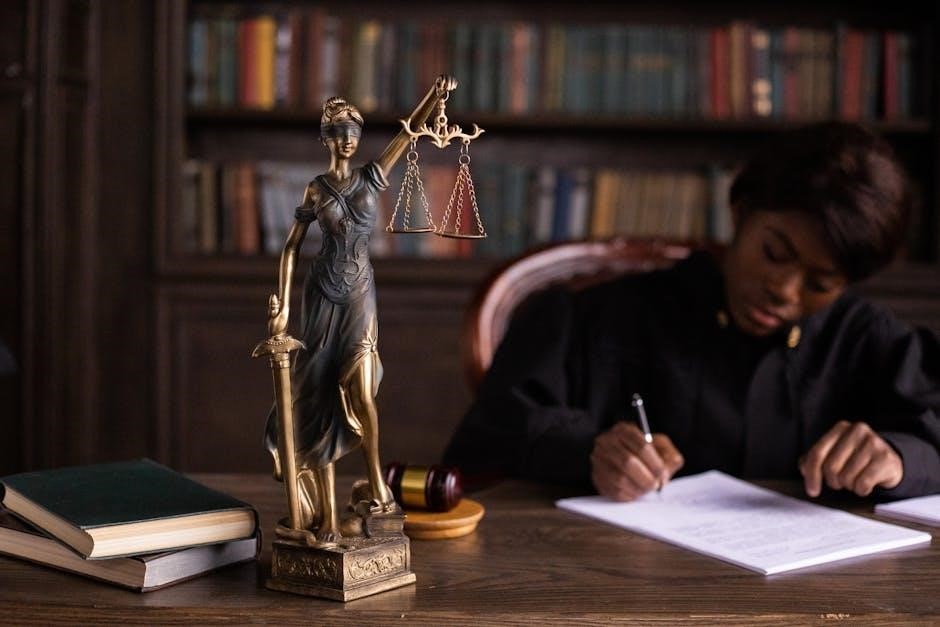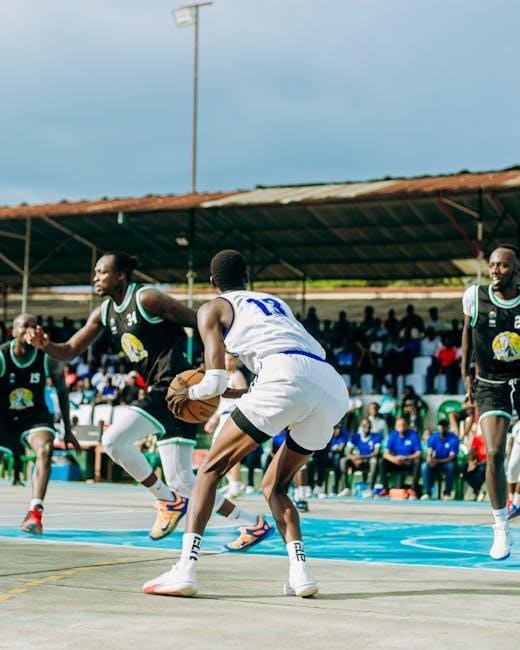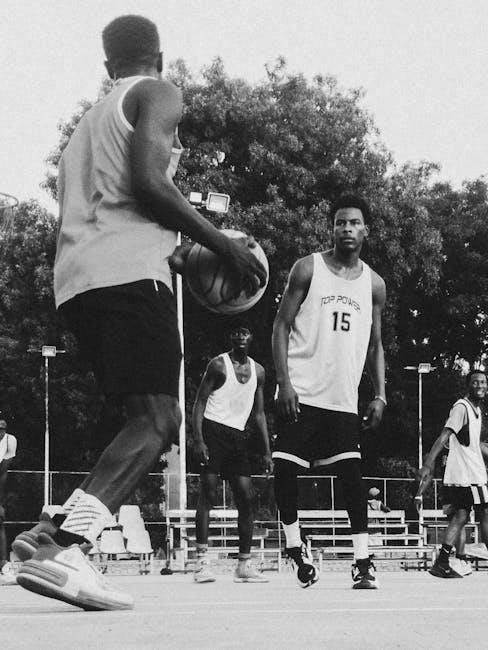The legal battle between Rodney Jones and Sean “Diddy” Combs has sparked significant attention due to its serious allegations and high-profile nature, as detailed in court documents.
1.1 Background of Rodney Jones and Sean “Diddy” Combs
Rodney Jones, a music producer, has gained recognition for his work in the entertainment industry, collaborating with various artists. Sean “Diddy” Combs, a renowned rapper, entrepreneur, and record executive, is widely known for his influential role in shaping hip-hop culture. Born as Sean John Combs, he has adopted multiple stage names, including Puff Daddy, P. Diddy, and Brother Love. Combs’ career spans over three decades, during which he founded Bad Boy Records and expanded into fashion, spirits, and other ventures. Both figures have built significant reputations in their respective fields, but their professional relationship has been marred by legal disputes, as detailed in the court documents related to the case.
1.2 Overview of the Lawsuit and Its Significance
Rodney Jones filed a $30 million lawsuit against Sean “Diddy” Combs, alleging serious charges including sexual assault and harassment. The case has garnered significant media attention due to the high-profile nature of the individuals involved and the gravity of the accusations. Court documents reveal that Jones accuses Combs of creating a hostile environment and engaging in inappropriate conduct. The lawsuit also names other defendants, expanding its scope beyond just Combs. The legal battle is notable not only for its potential implications on Combs’ reputation but also for its broader impact on the music industry, raising questions about accountability and power dynamics. This case is being closely watched by legal experts and the public alike, highlighting the importance of addressing such allegations in a court of law.
The Lawsuit Filed by Rodney Jones
Rodney Jones filed a $30 million lawsuit against Sean “Diddy” Combs, alleging sexual assault and harassment, as outlined in the court documents submitted to the court.
2.1 Nature of the Claims Against Sean Combs
The lawsuit filed by Rodney Jones against Sean “Diddy” Combs includes allegations of sexual assault, harassment, and exploitation. These claims are detailed in the court documents, which outline specific incidents and purported misconduct by Combs. The plaintiff asserts that Combs engaged in a pattern of behavior that created a hostile environment, leading to severe emotional and psychological harm. The legal filings also reference broader accusations of misconduct within Combs’ professional and personal circles, suggesting a systemic issue. These allegations have drawn significant media attention and public scrutiny, raising questions about accountability and justice in high-profile cases.
2.2 Key Allegations in the Court Documents
The court documents outline detailed allegations against Sean “Diddy” Combs, including claims of sexual assault, harassment, and exploitation. Rodney Jones, the plaintiff, alleges that Combs engaged in a pattern of misconduct, creating a hostile and abusive environment. The filings also reference broader accusations of racketeering and sex trafficking, suggesting a systemic issue. Specific incidents are described, with Jones claiming severe emotional and psychological harm as a result. The documents further allege that Combs used his influence to silence victims through non-disclosure agreements and intimidation. These allegations are supported by evidence, including photos and witness accounts, aiming to establish a pattern of behavior. The case highlights serious legal and ethical concerns, with significant implications for Combs’ reputation and potential liability.
Court Documents and Legal Filings

The court documents detail extensive allegations, evidence, and legal arguments from both Rodney Jones and Sean “Diddy” Combs, providing insight into the case’s complexities and stakes.

3.1 The 30 Million Dollar Lawsuit
Rodney Jones filed a $30 million lawsuit against Sean “Diddy” Combs, alleging sexual assault and emotional distress. The complaint outlines specific incidents and seeks damages for harm suffered.

3.2 Dismissal of Certain Claims by the New York Judge
A New York judge dismissed five out of nine claims made by Rodney Jones against Sean “Diddy” Combs in the $30 million lawsuit. This decision, detailed in court documents, significantly impacted the case’s trajectory. The judge ruled that certain allegations lacked sufficient evidence or legal standing, narrowing the scope of the litigation. While some claims were dismissed, others remained, allowing the case to proceed on specific grounds. Diddy’s legal team argued that the dismissed claims were unfounded and lacked merit. The ruling underscores the legal system’s scrutiny of evidence and the challenges plaintiffs face in meeting the burden of proof in high-stakes cases.
Legal Developments and Updates
Sean “Diddy” Combs requested the lawsuit’s dismissal, alleging extortion. The case saw significant developments, including the role of non-disclosure agreements and ongoing legal filings in court documents.
4.1 Diddy’s Request to Dismiss the Lawsuit
Sean “Diddy” Combs has formally requested the dismissal of the lawsuit filed by Rodney Jones, arguing that the claims lack merit and are part of an alleged extortion attempt. In court documents, Diddy’s legal team contends that Jones’s allegations are unsupported by evidence and are designed to coerce a settlement. The motion to dismiss highlights legal deficiencies in the complaint, emphasizing that Jones fails to meet the burden of proof required for the claims presented. This legal maneuver is a strategic step by Diddy’s defense to undermine the credibility of the case and potentially avoid further litigation. The outcome of this request remains pending, awaiting the court’s decision.
4.2 The Role of Non-Disclosure Agreements in the Case
The case has seen the introduction of non-disclosure agreements (NDAs) as a key element in Sean “Diddy” Combs’ defense strategy. Court documents reveal that Combs’ legal team has presented an NDA signed by Rodney Jones, which they argue undermines Jones’ allegations. The NDA reportedly pertains to confidential discussions and agreements between the parties, potentially limiting Jones’ ability to disclose certain details publicly. This legal tactic aims to discredit Jones’ claims by suggesting that the allegations may violate the terms of the NDA. The role of NDAs in this case highlights the complexities of confidentiality and legal obligations in high-stakes disputes, adding another layer to the ongoing legal battle.

Public Reaction and Media Coverage

The case sparked public interest, with media outlets like PEOPLE reporting on the dismissal of claims and the $30 million lawsuit against Diddy, drawing significant attention to the court documents and allegations.
5.1 Media Reporting on the Case
Media outlets such as PEOPLE and The Washington Post provided extensive coverage of the case, highlighting the dismissal of several claims against Sean Combs and the $30 million lawsuit filed by Rodney Jones. The case gained significant attention due to the high-profile nature of the individuals involved and the serious allegations, including sexual assault and racketeering. The Washington Post even created an interactive database detailing the numerous lawsuits against Sean Combs, underscoring the public interest in the case. The media’s focus on court documents and legal developments kept the story prominent in the news cycle, drawing widespread public scrutiny and debate.
5.2 Public Interest in the Court Documents
The court documents related to Rodney Jones v. Sean Combs have garnered significant public interest, particularly due to the high-profile nature of the case. Many individuals have sought access to the 75-page complaint and related filings, which detail allegations of sexual assault, harassment, and racketeering. The dismissal of certain claims by a New York judge further piqued public curiosity, as did the $30 million lawsuit’s specifics. Media outlets and online platforms have facilitated access to these documents, leading to widespread discussion on social media and legal forums. The public’s fascination with the case underscores the broader societal interest in celebrity legal battles and their implications.

The Broader Implications of the Case
The case raises questions about accountability for high-profile figures and the music industry’s handling of misconduct, potentially setting precedents for future legal proceedings and public discourse.
6.1 Impact on Sean Combs’ Reputation
The allegations against Sean Combs have cast a shadow over his reputation, with court documents detailing serious claims that have drawn widespread media attention and public scrutiny. As a high-profile figure in the music industry, Combs’ image has been significantly impacted, potentially affecting his business ventures and public persona. The dismissal of certain claims has provided some relief, but the ongoing legal battle continues to attract negative publicity. Fans and collaborators may reevaluate their support, fearing guilt by association. The case underscores the fragility of celebrity reputations when faced with legal challenges, even if not all allegations are proven. This situation highlights the challenges of maintaining a positive public image amidst serious legal accusations.
6.2 Ramifications for the Music Industry
The legal challenges faced by Sean Combs have broader implications for the music industry, as high-profile cases can influence public perception and industry practices. Court documents reveal serious allegations that may prompt increased scrutiny of power dynamics and accountability within the entertainment sector. The dismissal of certain claims highlights the complexity of legal battles in such cases. This situation could lead to heightened awareness among industry professionals about ethical standards and legal vulnerabilities. Additionally, the case may encourage more transparency and stricter enforcement of contracts and agreements to prevent similar disputes. Overall, the ramifications extend beyond Combs, potentially inspiring systemic changes in how the music industry operates and addresses such issues.
The case highlights legal complexities and ethical questions, with potential future developments likely to impact both Sean Combs and the broader music industry landscape significantly.
7.1 Summary of the Case’s Progress
The lawsuit filed by Rodney Jones against Sean “Diddy” Combs has seen significant developments. A New York judge dismissed five of Jones’ nine claims, narrowing the case’s scope.
Diddy’s legal team successfully argued that certain allegations lacked merit, reducing the lawsuit’s potential liability. However, the case remains active, with Jones pursuing remaining claims.
Court documents reveal ongoing legal battles, including Diddy’s motion to dismiss the entire lawsuit, citing alleged extortion attempts. The case continues to unfold, with both parties actively engaging in legal proceedings.
The outcome remains uncertain, but the dismissal of key claims signals a shift in the case’s trajectory, potentially influencing future developments.

7.2 Potential Future Developments
The case between Rodney Jones and Sean “Diddy” Combs may see further legal proceedings as both parties continue to address the remaining claims.
Diddy’s legal team has requested the dismissal of the entire lawsuit, alleging extortion, which could impact the case’s trajectory.
Court documents suggest that the judge may rule on whether the non-disclosure agreements cited by Diddy’s team are enforceable, potentially influencing the outcome.
If the case progresses, it could move toward a trial or settlement discussions. Additionally, the court may consider new evidence or witness testimonies that could alter the case’s dynamics.
The legal battle’s resolution may also depend on how the judge interprets the allegations and the defenses presented by both sides.
